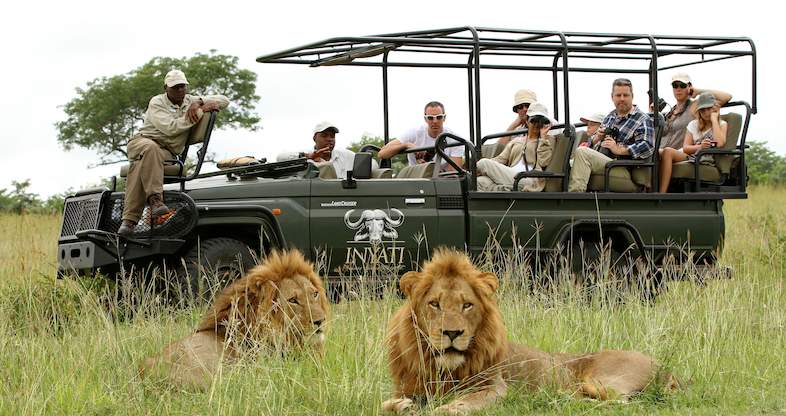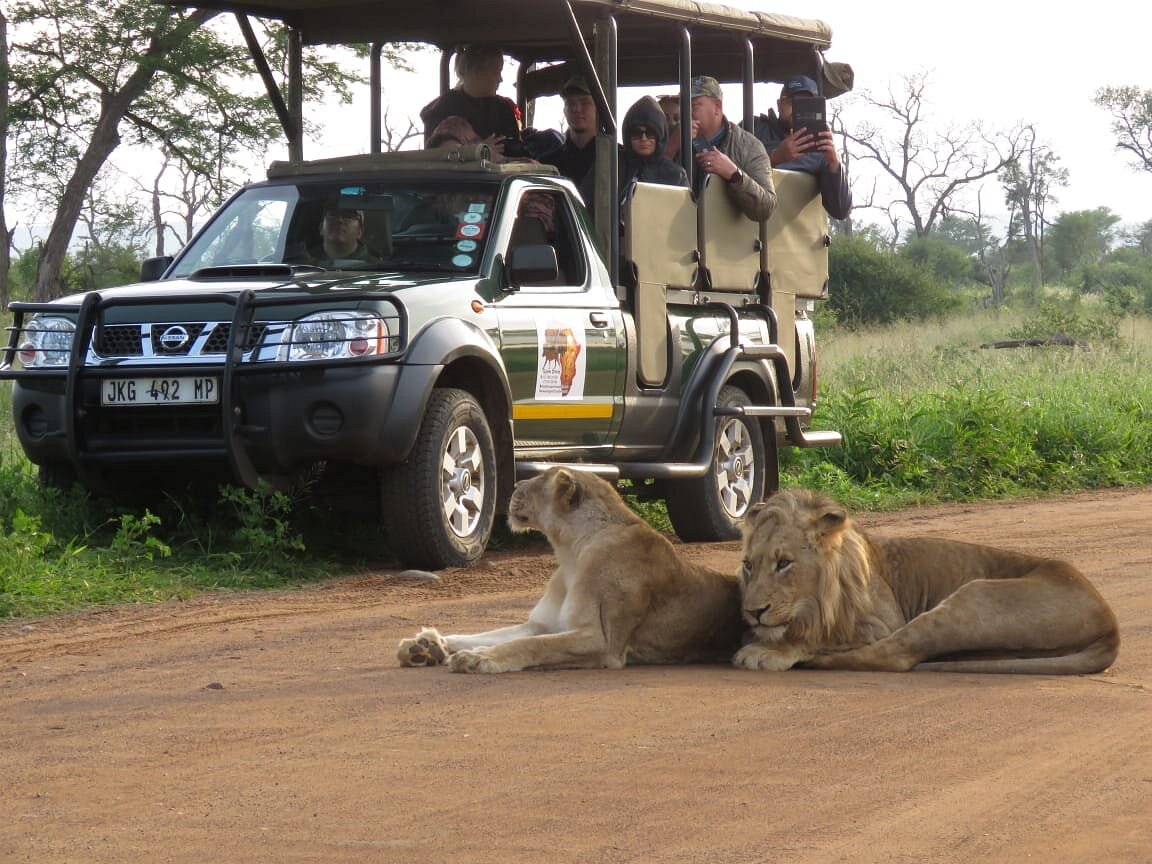Check Out Iconic Wild Animals and Picturesque Elegance with Kruger Park Safaris
Untangling the Wonders of Nature Through Kruger Park Safaris: Experience the Appeal and Biodiversity of South Africa's Iconic Park
Kruger National Park stands as a testament to the abundant biodiversity and stunning landscapes that South Africa has to offer. Covering an impressive stretch, this famous park is not just a haven for the renowned Large Five yet likewise a lively habitat for plenty of various other varieties and communities.
Introduction of Kruger National Park
Kruger National Park, spanning over 19,000 square kilometers, is one of Africa's biggest game reserves and a premier location for wild animals fanatics. Developed in 1898, it is located in northeastern South Africa, mainly within the Limpopo and Mpumalanga districts. The park is identified by its varied environments, varying from grasslands and savannahs to thick bushveld and riverine forests, giving environments for an array of flora and fauna.
Home to an impressive variety of species, Kruger National Park flaunts over 500 bird varieties, 147 mammal types, and various reptiles and amphibians, making it a biodiversity hotspot. The park's properly maintained roadway network enables both self-drive and led safari experiences, making it possible for site visitors to explore its vast landscapes and engage with wildlife in their all-natural habitats.
Additionally, Kruger National Park is devoted to conservation initiatives, guaranteeing the defense of its communities while advertising sustainable tourism. Numerous private and public lodgings are readily available, ranging from high-end lodges to rustic camps, satisfying various choices and spending plans. Ultimately, Kruger National forest supplies an unmatched opportunity to immerse oneself in the awesome elegance and complexity of South Africa's natural heritage.
The Huge 5 Experience
Starting a safari in Kruger National Park provides an electrifying possibility to witness the legendary Big Five-- lion, leopard, rhinoceros, elephant, and Cape buffalo-- in their all-natural environment. This iconic experience draws wildlife enthusiasts and adventurers from around the globe, all excited to come across these majestic animals in the wild.
The excitement of identifying the Huge 5 starts with the lion, usually observed relaxing in the color or patrolling their region. The evasive leopard, recognized for its stealth, can be seen hing on branches or stealthily relocating through the underbrush. On the other hand, the splendour of elephants, with their complex social structures, supplies a fascinating screen of intelligence and familial bonds.
The rhinoceros, both white and black varieties, uses an unusual sighting due to their declining populaces, making any type of encounter particularly special. Last but not least, the Cape buffalo, usually located in big herds, showcases the stamina and resilience of African wildlife.
Assisted safaris improve this experience, as knowledgeable rangers share understandings right into animal actions and conservation initiatives. Experiencing the Big 5 in Kruger National Park is not simply a safari; it's a memorable trip into the heart of nature's marvels.

Diverse Ecosystems and Wildlife
Beyond the excitement of running into the Big Five, Kruger National Park is renowned for its diverse communities and rich selection of wildlife. Covering almost 20,000 square kilometers, the park includes a selection of environments, consisting of savannahs, wetlands, rivers, and forests - Kruger park safaris. Each ecosystem supports unique flora and animals, developing a vivid tapestry of life that brings in site visitors from around the world
The park is home to over 147 creature types, including renowned animals such as elephants, lions, and leopards, as well as lesser-known species like the evasive serval and the native African wild canine. Herbivores such as buffalo and you could look here giraffe flourish in the open meadows, while the thick bushveld offers refuge for smaller sized animals and many reptiles.
Along with mammals, Kruger flaunts an excellent diversity of plant, with around 1,982 types recorded. This agricultural splendor not only boosts the park's appeal but also plays an essential function in supporting its wild animals. The interconnectedness of these communities exhibits the fragile balance of nature, making Kruger National forest have a peek at these guys an important sanctuary for biodiversity and an impressive destination for nature fanatics seeking to discover the wonders of the African wild.
Birdwatching Opportunities

The park's varied landscapes, ranging from savannas to wetlands and dense woodlands, offer distinct possibilities to spot a multitude of varieties. Birdwatchers can anticipate to see famous varieties such as the African Fish Eagle, Lilac-breasted Roller, and the vivid Southern Ground Hornbill. For those curious about migratory patterns, the summer season months witness an influx of African and european migrants, improving the park's avian variety.
Strategically placed bird hides and viewing systems enhance the birdwatching experience, allowing lovers to observe birds in their natural habitats without disruption. Assisted birdwatching adventures led by well-informed rangers can even more improve the experience, using understandings into bird habits and ecology. Whether you are an expert or a beginner, Kruger National forest offers an unequaled possibility to connect with the avian wonders of South Africa, making sure memorable experiences with its feathered residents.
Planning Your Safari Adventure
A well-planned safari experience in Kruger National forest can boost your experience, allowing you to completely submerse yourself in its abundant biodiversity. To begin, identify the ideal time for your see, as periods substantially affect wild animals habits and ease of access. The dry cold weather (May to September) are excellent for game watching, while the wet summer season months (November to February) use lush landscapes and lively birdlife.
Following, pick your accommodation intelligently. Options range from high-end lodges to budget-friendly campgrounds, each giving special perspectives on the park's wildlife. Think about scheduling guided excursions led by knowledgeable rangers, that can provide very useful insights into the region's ecology and animal habits.
Furthermore, acquaint on your own with the park's considerable road network and designated locations for wild animals viewing. Produce a flexible schedule that permits spontaneous sightings, as nature is unpredictable - Kruger park safaris. Do not forget to load necessary equipment, consisting of binoculars, a video camera, and ideal garments for differing temperature levels
Final Thought
In conclusion, Kruger National forest functions as an important shelter for varied ecological communities and wild animals, highlighting the complex relationships that sustain its abundant biodiversity. The possibility to come across the Big Five and observe over 500 bird species improves the understanding of natural marvels. Effective preparation for safari adventures permits a much deeper gratitude of the park's ecological importance. Kruger National forest remains a crucial destination for wildlife lovers and conservation supporters alike.
Kruger National Park, spanning over 19,000 square kilometers, is one of Africa's biggest game books and a premier destination for wildlife lovers.Beyond the thrill of experiencing the Big 5, Kruger National Park is renowned for its varied ecosystems and abundant selection of wild animals.A tactical safari adventure in Kruger National Park can boost your experience, permitting you to totally submerse on your own in its abundant biodiversity.In final thought, Kruger National Park offers as a his explanation crucial haven for varied ecological communities and wild animals, highlighting the intricate connections that support its abundant biodiversity. Kruger National Park remains a necessary location for wildlife enthusiasts and conservation advocates alike.